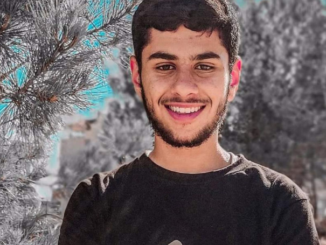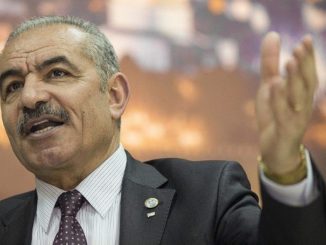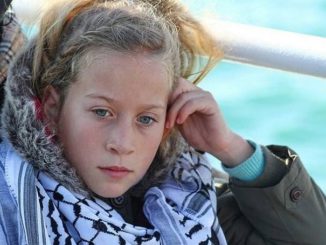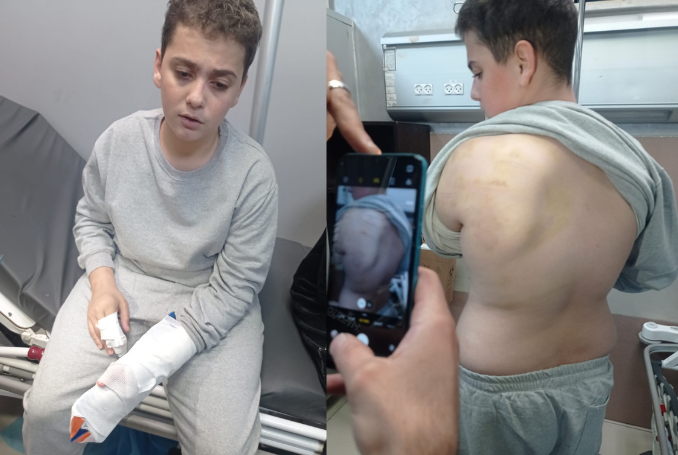
Mohammed returned to his home from where he was arrested, but his mind remained in the Israeli prison. The images of the prisoners have not left him, he cannot forget them.
Mohammed Nazzal’s family cried out in horror when they saw him for the first time in three months. His hands were wrapped in white cloth, and he was unable to move them. He had also lost a lot of weight.
Mohammed, 17, was one of dozens of Palestinian children released as part of an exchange deal between the Israeli government and the Palestinian Resistance Movement Hamas.
A total of 240 Palestinian women and children were freed from incarceration over the course of a week, in exchange for more than 80 Israeli captives held in the Gaza Strip.
Painful Memories
On August 24, twenty Israeli soldiers stormed Mohammed’s house in the town of Qabatiya, south of Jenin. They arrested him despite his young age, tied him up, and blindfolded him.
“They beat me in front of my family, my brother was screaming at them, so they beat him too. They took me outside the house to the military vehicle, then to the Dotan settlement, west of Jenin,” he said.
Along the way, Mohammed was kicked and beaten endlessly with Israeli soldiers’ rifles, to the point that he was screaming in pain.
He told Palestine Chronicle that he was transferred to the Huwwara military camp, south of Nablus. There the situation was deplorable. Palestinian prisoners were subjected to ill-treatment, starvation, and humiliation.
“The Israeli soldiers were screaming and mocking us all the time. The food was dirty and there were no clothes,” he said.
After nine days, Mohammed was transferred to Megiddo Prison. There, conditions improved slightly, but the prison administration refused to place him in the children’s section under the pretext that he was close to 18 years old.
Without charge or trial, he was placed in administrative detention for a period of six months. This period can be extended according to the mood of the Israeli intelligence, which decides how many times it can be extended.
Palestinian child prisoner Mohammed Nazzal: "They beat me up with metal bars."
FOLLOW OUR LIVE BLOG: https://t.co/DgXrBhM6Az pic.twitter.com/lbKGnHOJoN
— The Palestine Chronicle (@PalestineChron) November 28, 2023
Brutality
After October 7, coinciding with the start of the Israeli aggression on the Gaza Strip, the Israeli prison administration worsened the conditions of Palestinian detainees even more.
“They attacked all the sections (of the prison) and beat the prisoners. They released police dogs at us that bit my legs, none of the jailers intervened to stop them.”
The beatings occurred almost daily, said Mohammed. No prisoner was spared, regardless of age or health condition.
All suffered fractures and bruises.
After weeks of injuries to his legs and not receiving any treatment, Mohammed was transferred to the Naqab prison in the desert of southern Israel, where he was subjected to various types of torture.
“The repression units repeatedly stormed the cells and beat us. Ten days before my release, more than six Israeli soldiers attacked me, beat me, and stepped on my head. I heard the sound of my fingers breaking,” he added.
Mohammed remained on the ground. After the repression forces left, the other prisoners rushed to help him. He couldn’t move his hands and his back was full of bruises.
“I was screaming at the jailers to take me to the clinic and treat me because I was sure there were fractures, my fingers swelled and turned blue, but they responded by cursing me.”
Mohammed’s suffering continued for the ten days that preceded his release from prison. He could not eat or drink on his own, nor go to the bathroom. The rest of the prisoners helped him.
The scenes in the cell, Mohammed said, were heartbreaking: an elderly prisoner crying in intense pain after being beaten, another prisoner screaming and wanting treatment, and a third whose clothes were full of blood.
Prison authorities did not have mercy on the elderly or children, rather they increased their beatings, taking advantage of their weakness, he said.
‘Israeli Prisons Became a Graveyard for Us’: Freed Palestinian Child Prisoner Speaks Out
Horrific Treatment
Mohammed did not know that he would be among those released. He and the other prisoners, in fact, were unaware of the exchange deals.
The Israeli prison administration confiscated everything from the prisoners’ cells and were still isolating them from the outside world.
The authorities came to his cell and called his name, beat him once again and then took him to a detention room. He thought he would be subjected to interrogation or solitary confinement.
“I didn’t know that they were going to release me until they took me to the Red Cross bus. I couldn’t get on (the bus), the workers helped me, asking me why I struggled. I told them that I had been severely beaten, so they bandaged my hands,” he explained.
Mohammed’s family was shocked by what happened to him. He tried to reassure them, despite his pain.
He was first taken to the Palestine Medical Complex in Ramallah. There, the doctors conducted tests and x-rays, which confirmed that two fingers were broken and had begun to heal incorrectly.
Doctors were forced to break his fingers again amidst terrible pain. In the coming weeks he is to undergo surgeries to implant platinum in his hands.
Mohammed returned to his home from where he was arrested, but his mind remained in the Israeli prison. The images of the prisoners have not left him, he cannot forget them.
“Their freedom is the most important thing. They are all injured as a result of beatings, they are deprived of adequate food and even water. They have no clothes or blankets. They are all suffering without exception,” Mohammed said.
(The Palestine Chronicle)
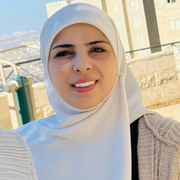
– Fayha’ Shalash is a Ramallah-based Palestinian journalist. She graduated from Birzeit University in 2008 and she has been working as a reporter and broadcaster ever since. Her articles appeared in several online publications. She contributed this article to The Palestine Chronicle.



